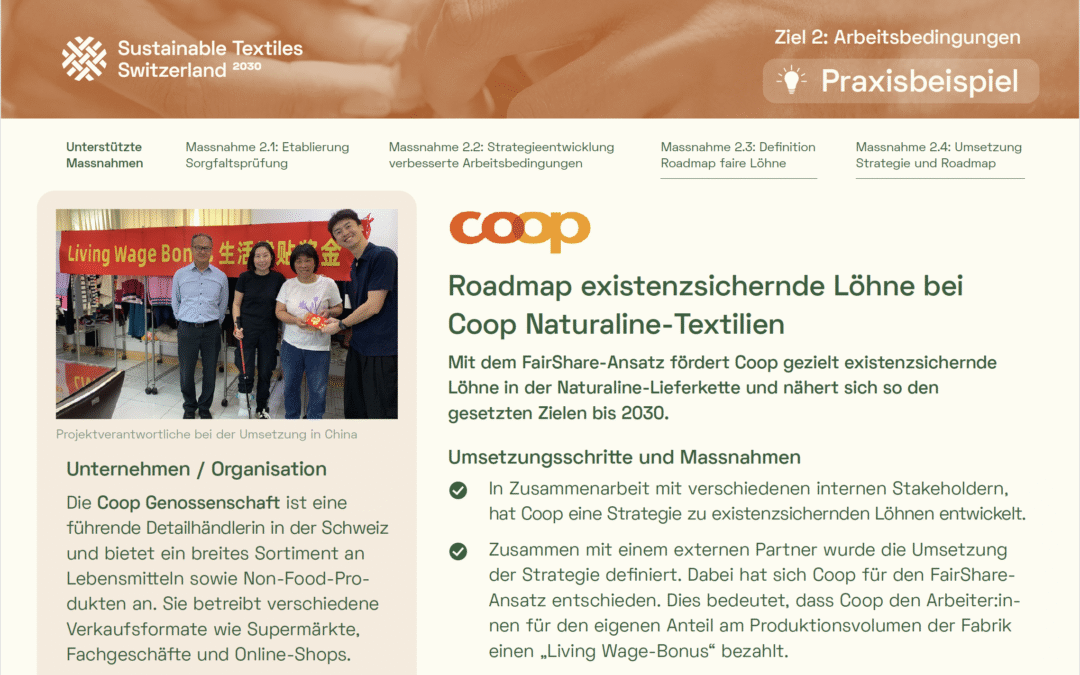Picture: STS 2030
Living wages are one of the key challenges facing global supply chains. With its FairShare approach, Coop is taking a pragmatic step toward directly improving incomes in the Naturaline supply chain.
The starting point
Article 23 of the Declaration of Human Rights states:
“Everyone who works has the right to fair and satisfactory remuneration that ensures a life of human dignity for themselves and their family.”
Coop has incorporated this principle into its sustainability strategy and developed a roadmap for living wages. In collaboration with internal and external partners, the company opted for the FairShare approach: a “living wage bonus” is paid directly to workers for the production volume purchased by Coop from a factory.
Implementation
Project management and procurement jointly selected the first suppliers and integrated them into the program. As part of the onboarding process, they received information about the strategy and goals, were able to ask questions, and calculate the wage gap based on their own data.
The bonus payments are simple in design, but data collection is complex. Good business relationships, trust, and an understanding of wage and social structures in the producing countries are crucial for successful implementation. The result is clear to see:
- Three producers from the Naturaline supply chain are participating in the FairShare approach.
- Over 1,000 workers regularly receive additional income
- The bonus increased the lowest wages by 7–11% per month.
Findings from the project
The FairShare bonus shows that incomes can be improved directly in the short term. However, the underlying structures remain in place. To achieve profound change, dialogue, long-term cooperation, and the commitment of all stakeholders along the supply chain are needed.
Like all practical examples from the committed actors of STS 2030, this one is also publicly available: https://www.sts2030.ch/project/roadmap-for-living-wages-at-coop-naturaline-textiles/?lang=en

